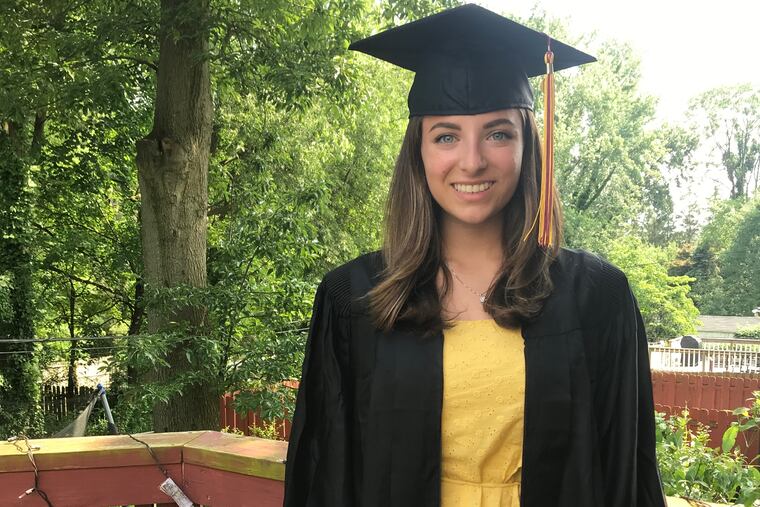Central High School valedictorian: Education is equity | Perspective
I’m valedictorian because I worked hard. But I also benefited from advantages many other students don’t have.

Sasha Hochman graduated as valedictorian from Central High School on May 31. She gave this speech at commencement and will attend Barnard College in the fall.
Good morning.
I would like to take a moment to thank President McKenna, and the assistant principals, Ms. Harrington, Dr. Scott, and Mrs. Vanbuskirk. I want to thank our families, friends, and Central alumni for supporting us and being here today to celebrate our accomplishments. And of course, I want to thank my class of 278.
Today, I especially want to thank my teachers. For fostering my curiosity, for answering my questions, my follow-up questions, and my clarifying questions. I want to thank my teachers for pointing out ways to grow that I could never have seen myself. My teachers prepared me with an education in which I learned to be self-reflective and critical enough to recognize the face of inequality.
I’m speaking today because I worked hard. I prioritized studying. I motivated myself to finish the chapter, to go to tutoring, to revise my English essay one last time.
But that’s only part of the reason why I’m speaking today.
I’m also speaking because of the family I was born into. Because my family is middle class, and I could prioritize studying. Because both of my moms are college-educated, they could help me revise my English essay. I’m speaking today partly because of the privileges that accompany having white skin in the United States.
In 10th grade, I realized that I had to do more than merely recognize my privilege. I started volunteering with Breakthrough, an organization that helps underserved students in Philadelphia get to and through college. I taught my seventh- and eighth-grade students about civil rights and how to write compelling speeches to defend them. We read the play Twelve Angry Men and discussed the injustices woven into the justice system. I wanted my students to get into Central, and a few of them did, but others were not as lucky.
» READ MORE: What would you change about Philly? High school seniors share their hopes for the city. | Perspective
One of my students told me that his seventh-grade math teacher left in October, only to be replaced by a long-term substitute who had no background in mathematical education. Acceptance to magnet high schools within the Philadelphia School District is largely determined by seventh-grade PSSA scores. This student was smart. He was motivated. He gave up his summers and every other Saturday during the school year to come to Breakthrough to learn. And this still wasn’t good enough.
We all got into Central because we were smart and because we wanted to learn, but also because we were lucky enough to have a qualified math teacher in seventh grade. Because of circumstances outside of my student’s control that had nothing to do with the type of learner he was, he did not have this same opportunity.
The political philosopher John Rawls proposed a thought experiment for determining what kind of society we want to live in. We need to position ourselves behind a veil of ignorance, said Rawls. Forget all of the facts of our lives and then wager our bets on where we might end up at birth. It’s possible that you might be born in the catchment area for Beverly Hills High, but it’s far more likely that you would end up as an under-resourced, underserved student in Philadelphia. Or Chicago. Or Baltimore. Any city where students’ educational experiences depend largely upon their family’s resources.
Given those mathematical probabilities, Rawls asked, would you choose to be born at all? And if the answer is no, that you wouldn’t take the risk of being born in the wrong zip code, then we begin to understand what we need to accomplish in working toward a society that sees justice as fairness, and fairness as education, and education as equity.
One of my favorite philosophers, Slavoj Zizek, once claimed, or rather, once tweeted, “I secretly think reality exists just so that we can speculate about it.” Well, so too the future. But we can’t only speculate about it. We need to take actions like reconsidering the merits of the 10-year tax abatement — a system that Philadelphia implemented to incentivize new construction but that significantly lowers property taxes for corporations, 55 percent of which go to the School District. We need to devote more resources to early childhood education. We need to increase the starting teacher’s salary so that Americans want to teach seventh-grade math, and that rather than a last resort, teaching becomes a privilege.
Today, let’s celebrate our accomplishments, all of the factors that carried us here, while also working toward a more equitable future.
Thank you.